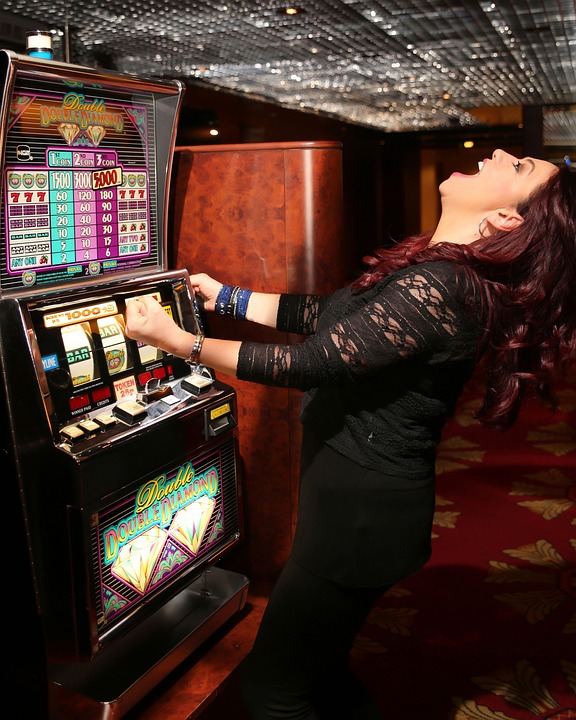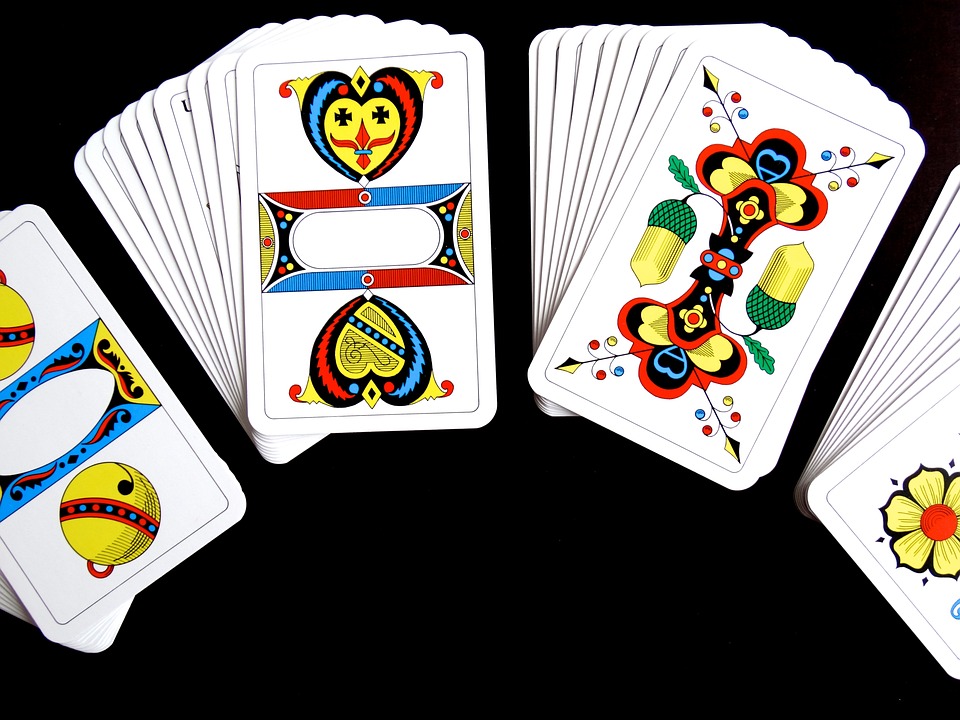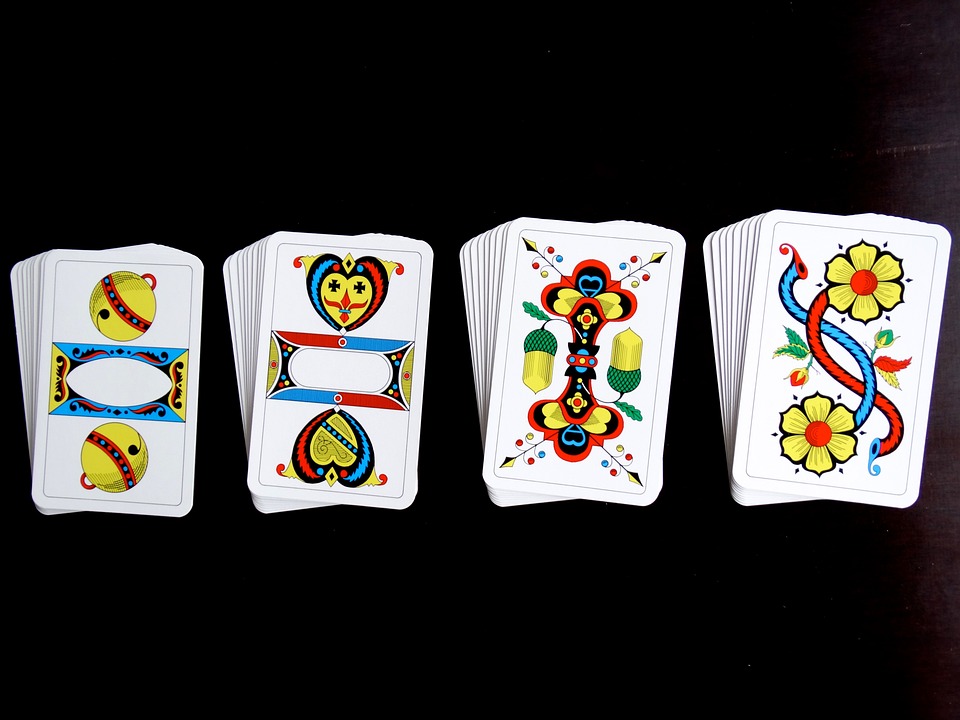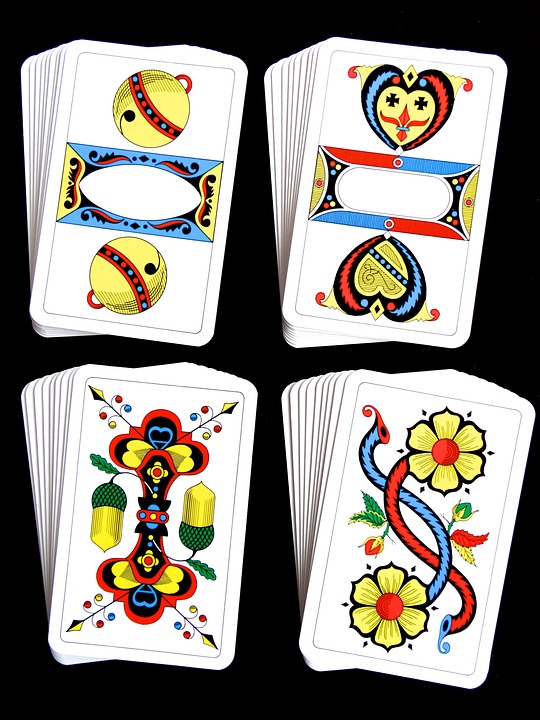What Makes a Casino Safe? Unpacking Security Protocols in the Philippines

What Makes a Casino Safe? Unpacking Security Protocols in the Philippines The glitz and glamour of casinos often mask the complex web of security protocols that ensure a safe environment for patrons. In the Philippines, a nation with a burgeoning gaming industry, the safety and security of casino operations are paramount. As the country continues to attract both local and international visitors looking to indulge in entertainment and gaming, it’s crucial to understand what makes a casino safe. Here, we unpack the various security protocols that Philippine casinos employ to protect their customers, employees, and assets. 1. Licensing and Regulatory Compliance A fundamental aspect of casino safety in the Philippines is the regulatory oversight provided by the Philippine Amusement and Gaming Corporation (PAGCOR). This government agency is responsible for regulating all forms of gambling and ensures that licensed casinos adhere to strict operational standards. The licensing process involves thorough scrutiny of a casino’s financial stability, management structure, and compliance with anti-money laundering (AML) laws. Casinos must also follow strict guidelines regarding the fair play of games, further ensuring a secure environment for players. 2. Surveillance and Monitoring Systems Highly sophisticated surveillance systems are the backbone of casino security. In the Philippines, casinos deploy state-of-the-art technology designed to monitor activities within their premises around the clock. High-definition cameras are strategically placed throughout the gaming floor, cash handling areas, and entry points to record and stream live footage to security command centers. These systems enable security personnel to detect suspicious activities, prevent cheating, and respond quickly to potential threats. With the rise of artificial intelligence, many casinos are also integrating advanced analytics to enhance the efficiency of their surveillance operations. 3. Trained Security Personnel Physical security plays a vital role in maintaining a safe gaming environment. Philippine casinos employ trained security personnel who are well-versed in handling a variety of situations, from managing disputes between patrons to identifying potential criminal behavior. These professionals often undergo rigorous training in conflict resolution, emergency response, and crowd control. Moreover, many casinos have a visible security presence throughout the premises, which helps to deter any potential wrongdoing and reassures guests of their safety. 4. Access Control Measures Controlling access to restricted areas is another critical aspect of casino security. Casinos typically implement a range of access control measures that include biometrics, ID checks, and digital keycard systems for staff areas. Public access points such as gaming floors and restaurants are monitored carefully, often requiring entry through designated doors overseen by security staff. This ensures that only authorized personnel can access sensitive areas like cash handling and vault storage, reducing the risk of theft or fraud. 5. Play and Payment Security To ensure safe gaming experiences, casinos employ robust protocols for managing both gaming and financial transactions. Electronic gaming machines and tables are equipped with secure technologies that protect against tampering and fraud. Additionally, casinos use secure payment processing systems that comply with international standards to safeguard financial transactions, including credit and debit card payments. Transparency in gaming operations is enforced through regular audits and compliance checks, ensuring that both the casino and its patrons are protected from financial misconduct. 6. Emergency Response Planning Preparation for emergencies such as fires, natural disasters, or security breaches is crucial for maintaining a safe environment. Philippine casinos often conduct drills and training sessions to ensure staff are equipped to respond effectively in emergencies. Emergency exit routes are clearly marked, and signage is regularly inspected. Casinos also collaborate with local law enforcement and emergency services to develop comprehensive response plans, ensuring a coordinated effort in the event of a crisis. 7. Customer Awareness and Education Lastly, educating patrons about the measures in place to protect them plays a significant role in enhancing a casino’s safety culture. Casinos often disseminate information about responsible gaming practices and general security tips. Staff are trained to assist guests in recognizing suspicious behavior and know the protocols for reporting incidents. A well-informed patron is more likely to feel safe and secure while enjoying their casino experience. Conclusion The safety of patrons in Philippine casinos is a multifaceted approach that combines regulatory oversight, advanced technology, trained personnel, and detailed emergency planning. As the gaming industry continues to grow, ensuring these security protocols remain robust and effective will be crucial to maintaining trust and attracting visitors. In an environment where excitement is the norm, knowing that safety is a priority allows players to fully immerse themselves in the entertainment landscape of the Philippines.
Gambling Responsibly: Promoting a Safe Casino Environment in the Philippines

The vibrant landscape of the Philippines is home to a burgeoning gambling industry, characterized by an influx of casinos that cater to both locals and tourists alike. From luxurious resorts in Manila to inviting establishments in provincial areas, the scene is rich with opportunity, excitement, and, at times, pitfalls. As gambling continues to gain popularity, the importance of promoting responsible gambling practices and creating a safe casino environment has become paramount. Understanding Responsible Gambling Responsible gambling refers to a set of policies and practices designed to minimize the risks associated with gambling. It encourages players to engage in gambling as a form of entertainment rather than a source of income. The essence of responsible gambling lies in ensuring that individuals understand the odds, set personal limits, and recognize gambling’s potential consequences. Key Components of Responsible Gambling Awareness and Education: Providing players with comprehensive knowledge about the games they are participating in is crucial. Casinos in the Philippines should implement educational programs that inform patrons about the odds of winning and the risks associated with gambling. Self-Exclusion Programs: Many casinos are beginning to offer self-exclusion programs that allow players to voluntarily restrict their access to gambling activities for specific periods. This can help those who feel they may be developing problematic gambling habits. Access to Resources: It is essential for casinos to provide access to helplines and support services for individuals who may be struggling with gambling addiction. By creating partnerships with mental health organizations, casinos can facilitate a safe space for dialogue and assistance. The Role of Casino Operators Casino operators play a pivotal role in fostering a culture of responsible gambling. Here are several strategies that operators can implement to create a safer environment for patrons: Implementation of Responsible Gambling Policies Establishing clear guidelines surrounding responsible gambling is essential. This includes setting weekly or monthly limits on gambling expenditure, encouraging breaks during play, and actively monitoring gameplay for patrons who may seem to be losing control. Training Staff Casinos must invest in training their staff on responsible gambling practices. Employees should be equipped with the knowledge to identify signs of problem gambling and understand how to approach and assist patrons in need of help. Promoting a Safe Gambling Environment A safe gambling environment is not just about minimizing harm; it’s also about fostering enjoyment and ensuring guests feel respected. This can involve: Visibly Posting Responsible Gambling Messages: Signage and digital displays that remind patrons to gamble responsibly can serve as gentle reminders throughout the casino. Creating Designated Areas: Establishing separate zones for high-stakes games can help manage the atmosphere and cater to different demographics. The Role of Government and Regulatory Bodies The Philippine Amusement and Gaming Corporation (PAGCOR) serves as the primary regulator for the gambling industry in the country. A commitment to responsible gambling aligns with PAGCOR’s mandate to promote a safe gambling environment. Key regulatory measures may include: Regular Audits and Compliance Checks: Ensuring that casinos adhere to established responsible gambling practices and regulations. Public Awareness Campaigns: Initiating campaigns aimed at educating the public about responsible gambling practices and the potential risks of gambling addiction. Conclusion As the gambling industry in the Philippines continues to expand, the responsibility of creating a safe casino environment falls on various stakeholders, including operators, employees, regulators, and patrons themselves. By promoting awareness, implementing effective policies, and fostering a culture of responsible gambling, the industry can protect its players and ensure that gambling remains a responsible source of entertainment. Ultimately, the goal is not to restrict people from enjoying the thrill of gambling but to encourage a balanced approach to this popular pastime. In doing so, the Philippines can cultivate a gambling culture that prioritizes safety, respect, and the well-being of all its participants.
Navigating Online vs. Land-based Casinos in the Philippines: Safety Considerations

The casino industry in the Philippines has experienced significant growth in recent years, with both land-based and online platforms attracting a diverse clientele looking for entertainment and potential winnings. However, as the options for gambling and gaming have expanded, so too have the complexities associated with ensuring player safety and security. This article explores the key safety considerations for both online and land-based casinos in the Philippines. Land-Based Casinos: Safety and Legality Regulation and Licensing The Philippine Amusement and Gaming Corporation (PAGCOR) is the national regulatory body overseeing the gaming industry in the Philippines. PAGCOR issues licenses to land-based casinos, ensuring they adhere to strict regulations aimed at protecting players. As a player, it’s crucial to ensure that the casino you choose is licensed and regulated. This not only guarantees a legitimate gaming environment but also ensures standards for fair play and responsible gambling practices. Security Measures Land-based casinos invest heavily in security measures. From surveillance cameras and security personnel to advanced technology for monitoring gameplay, these establishments prioritize the safety of their clients. However, it is always wise for players to remain alert and to utilize the safekeeping options casinos may offer for valuables, such as personal lockers. Cash Handling Playing at a land-based casino frequently involves cash transactions. While cash can facilitate a quicker betting experience, it also poses certain risks, including theft or loss. Players should exercise caution regarding how much cash they carry, avoid displaying large sums of money, and consider using electronic transaction methods where available, such as casino cards or chips instead of cash. Online Casinos: Safety and Cybersecurity Choosing a Reputable Operator Unlike their land-based counterparts, online casinos operate in a digital landscape where player safety is paramount. Before signing up with an online casino, players should verify the site’s licensing and regulatory status. Look for online casinos licensed by PAGCOR or reputable international gaming authorities, which ensures adherence to industry-standard practices for player safety. Data Protection Data breaches are a significant concern in the online gambling sector. Players should always choose casinos that employ robust cybersecurity measures, including SSL encryption technology, to protect personal and financial information. Additionally, players should review the casino’s privacy policy to understand how their data will be used and protected. Responsible Gambling Features Many reputable online casinos offer tools that promote responsible gambling, such as setting deposit limits, time alerts, and self-exclusion options. Before registering, players should familiarize themselves with these features and use them to ensure an enjoyable gambling experience without risking excessive losses. Common Safety Considerations for Both Platforms Recognizing Problem Gambling Whether online or at a land-based casino, a shared safety concern is the risk of developing gambling problems. Players should remain self-aware and vigilant about their gambling habits. It’s important to set personal budgets, recognize when to take breaks, and seek help if gambling becomes a source of stress or financial difficulty. Many establishments offer resources and support for those struggling with gambling addiction. Community Reviews and Feedback In the age of social media and online forums, players have access to a wealth of information regarding casinos. Checking out reviews and feedback from fellow gamblers can provide insight into a casino’s reputation and safety measures. Engaging with community discussions can also serve as an informal way to gauge a casino’s reliability, whether it operates online or in a physical location. Responsible Behavior For both online and land-based casinos, responsible behavior ensures a more secure environment. Players should avoid excessive consumption of alcohol while gambling, as intoxication can impair judgment and lead to poor decisions. Practicing self-control and moderation will enhance the overall gaming experience and reduce risks. Conclusion When navigating the vibrant landscape of casinos in the Philippines, safety considerations should always be at the forefront. Whether opting for the atmosphere of a land-based casino or the convenience of an online platform, players must conduct thorough research, remain vigilant about their safety, and adopt responsible gambling practices. By doing so, they can enjoy the thrill of gaming while minimizing potential risks, ensuring a safe and enjoyable experience regardless of the gambling format chosen.
Top 5 Safe Casinos to Visit in the Philippines: Where Fun Meets Security

The Philippines is not just a tropical paradise; it’s also becoming a prominent hub for gaming enthusiasts. With its vibrant nightlife, stunning landscapes, and warm hospitality, casinos in the Philippines offer a unique blend of fun and secure gaming environments. If you’re planning a visit to the archipelago and want to try your luck at the tables or slot machines, here are five of the safest casinos to consider. 1. Solaire Resort and Casino, Manila Located in the Entertainment City complex in Manila, Solaire Resort and Casino stands out as a premier luxury integrated resort. With top-notch amenities and entertainment options, it also ranks high in terms of safety. The casino features the latest technological advancements in security, including extensive surveillance systems and trained security personnel. Visitors can enjoy a vast array of games, live shows, and exquisite dining options within a secure environment, making it an ideal destination for both casual and seasoned gamblers. Key Features: Comprehensive security monitoring High-end facilities A variety of gaming options, from table games to slots 2. City of Dreams Manila Also located in Entertainment City, City of Dreams Manila is an extravagant resort that combines luxury with safety. The casino is equipped with advanced security measures, including CCTV surveillance and on-site security personnel ensuring a safe environment for guests. With a variety of gaming experiences, including a unique electronic gaming area, this multifaceted entertainment hub provides a perfect getaway for both gaming enthusiasts and families looking for possible leisure activities beyond the casino floor. Key Features: State-of-the-art security systems Multiple entertainment options (shows, restaurants, and bars) Family-friendly amenities 3. Okada Manila Another heavyweight in the Manila casino scene is Okada Manila. This resort-casino features stunning interiors and an array of gaming choices, from high-stakes poker to slot machines. The resort takes security very seriously; every corner is monitored, and the staff is well-trained to handle emergencies and maintain safety. Beyond gaming, guests can enjoy a beautiful fountain show, luxurious dining, and a spa, all within a secure environment. Key Features: Top-class security standards Spectacular entertainment options Luxurious amenities including a swimming pool and spa 4. Resorts World Manila Known for its integrated entertainment complex, Resorts World Manila is not just a casino but a complete entertainment destination. Security is a top priority, with extensive monitoring and a visible security presence throughout the venue. The casino offers a wide selection of games, including traditional Filipino card games, international slots, and poker rooms. With its accessible location near the Ninoy Aquino International Airport, it’s a convenient and safe choice for tourists. Key Features: Robust security infrastructure Variety of local and international game offerings Proximity to the airport 5. Windham Clarkton Hotel and Casino Located in Clark, Pampanga, Windham Clarkton Hotel and Casino offers a more intimate gaming experience with an emphasis on security and comfort. This hotel-casino hybrid prioritizes guest safety with proper security protocols, while still providing a range of gaming experiences. Its charming atmosphere and personalized service make it a favorite among locals and tourists alike, and the surrounding area offers various leisure activities that add to the overall appeal. Key Features: Focus on guest safety and comfort A variety of gaming options Charming location with nearby activities Conclusion The Philippines boasts an attractive selection of casinos that combine fun and security, ensuring that visitors can enjoy their gaming experience without worry. By choosing any of the above destinations, you can indulge in a wide variety of games and luxurious amenities while knowing that your safety is being prioritized. Whether you’re a seasoned gambler or just looking for entertainment, these casinos provide the perfect backdrop for a memorable and secure trip. So pack your bags and prepare for an exciting adventure in the Philippines’ fantastic gaming scene!
Safety Measures Every Casino in the Philippines Should Implement

Safety Measures Every Casino in the Philippines Should Implement The casino industry in the Philippines has seen exponential growth over the past few years, driven by a booming tourism sector and an increasing number of domestic gamblers. As this sector flourishes, ensuring the safety and security of patrons and employees becomes paramount. The following measures represent essential safety protocols that every casino in the Philippines should implement to foster a secure environment. 1. Comprehensive Surveillance Systems A robust surveillance system is the front line of defense against criminal activity in casinos. High-resolution cameras should be strategically placed throughout the premises, covering gaming floors, entrances, exits, and cash handling areas. Utilizing advanced technologies, such as facial recognition and movement tracking, enhances the ability to monitor suspicious behaviors while ensuring patrons feel secure. 2. Strict Access Control To prevent unauthorized access and enhance overall security, casinos should implement strict access control measures. Entrance points should be monitored with metal detectors, and bag checks can be instituted to deter potential criminal activities. Personnel should be equipped with identification cards that allow them to move freely in secure areas, while non-employees should have limited access based on their roles. 3. Staff Training and Emergency Protocols Investing in staff training is vital for casino safety. Employees should receive training not only on customer service but also on how to handle emergencies, including medical situations, evacuations, or acts of violence. Regular drills should be conducted to ensure that all staff members understand their roles during emergencies, fostering a culture of preparedness. 4. Responsible Gaming Initiatives Promoting responsible gaming practices is essential in any casino. Implementing measures such as self-exclusion programs, where patrons can voluntarily ban themselves from gaming activities, helps protect vulnerable individuals. Casinos should also offer support resources for patrons displaying gambling-related issues, creating an environment centered on player safety. 5. Enhanced Hygiene and Health Protocols In the wake of the COVID-19 pandemic, hygiene has become a critical concern. Casinos should maintain high standards of cleanliness, including regular sanitization of gaming machines, table games, and common areas. Offering hand sanitizing stations and ensuring that air circulation systems are up to date can significantly mitigate health risks, providing patrons with a safer gaming experience. 6. Collaboration with Law Enforcement Strengthening partnerships with local law enforcement agencies can enhance casino security. Establishing an on-site police presence or scheduling regular visits can deter criminal activities and assure patrons of their safety. Furthermore, casinos should have clear communication channels established with law enforcement for rapid response in case of emergencies. 7. Data Protection Measures As casinos become increasingly reliant on technology, safeguarding customer data is crucial. Implementing strong cybersecurity measures, such as firewalls, encryption, and regular audits, protects sensitive information from breaches. Transparent policies regarding data collection and use can also foster trust among patrons. 8. Emergency Medical Services on Standby Casinos should have trained medical personnel or paramedics on-site or within close proximity to respond to medical emergencies rapidly. Regular health workshops and health screenings can also be organized to ensure the well-being of both patrons and employees. 9. Clear Signage and Communication Signage around the casino should clearly indicate emergency exits, restroom locations, and safety procedures. Consistent communication regarding safety measures—such as public announcements about emergency protocols—can help patrons remain informed and prepared in case of an unexpected situation. Conclusion The prominence of the casino industry in the Philippines necessitates stringent safety measures to protect patrons and ensure a secure environment for gaming and entertainment. By implementing comprehensive surveillance systems, enhancing staff training, promoting responsible gaming, and maintaining high hygiene standards, casinos can cultivate an atmosphere of safety and trust. As the industry continues to grow and evolve, prioritizing safety will not only meet regulatory standards but also enhance the reputation and longevity of casinos in the Philippines.
How to Identify Safe Casinos in the Philippines: A Player’s Guide

The Philippines is a vibrant hub for gaming and entertainment, attracting both local and international players to its myriad casinos. However, not all casinos are created equal, and ensuring your safety and security while gambling is paramount. In this guide, we’ll walk you through the essential aspects to consider when evaluating the safety of casinos in the Philippines, helping you make informed decisions. 1. Check for Licensing and Regulation The first step in identifying a safe casino is to verify its licenses. In the Philippines, legal casinos are regulated by the Philippine Amusement and Gaming Corporation (PAGCOR). This government agency oversees all gambling operations to ensure fair play, transparency, and consumer protection. When choosing a casino, look for: PAGCOR Licensing: Ensure the casino is properly licensed by PAGCOR. You can find a list of licensed operators on their official website. International Licensing: Some casinos may hold additional licenses from reputable international gaming authorities (e.g., Malta Gaming Authority, UK Gambling Commission). This adds an extra layer of credibility. 2. Evaluate Security Measures A safe casino should prioritize the security of its patrons. Here’s what to look for: Physical Security: Check for adequate security personnel, surveillance cameras, and controlled access points. A well-secured casino should have visible security measures in place. Data Protection: For online casinos, ensure they use SSL (Secure Socket Layer) encryption for transactions. Look for privacy policies detailing how player data is handled and protected. 3. Read Reviews and Player Feedback One of the best ways to gauge the reliability of a casino is by reading player reviews: Independent Review Sites: Websites such as Casino Guru, AskGamblers, and TrustPilot feature authentic player reviews. Look for patterns in positive and negative feedback. Forums and Social Media: Engage with online communities or forums dedicated to gambling in the Philippines. Players often share their experiences, which can provide valuable insights into the casino’s reputation. 4. Assess Game Fairness Game fairness is crucial for a safe gambling experience: Random Number Generators (RNG): For online casinos, ensure they utilize RNG technology to guarantee fair play. You can find this information in the casino’s rules or about sections. Audited Games: Look for indications that the casino’s games are regularly audited by independent third-party companies for fairness, such as eCOGRA or iTech Labs. 5. Verify Responsible Gaming Practices A reputable casino will promote responsible gaming and offer features to help players manage their gambling activities: Self-Exclusion Options: Check if the casino provides options for self-exclusion and deposit limits to help players control their gambling habits. Support Resources: Ensure the casino has resources and links to organizations for players who may need help with gambling addiction, such as Gamblers Anonymous or other local helplines. 6. Customer Support Quality The availability and responsiveness of customer support can indicate the legitimacy of a casino: Multiple Channels: A safe casino should provide multiple channels for customer support, including live chat, email, and phone. Helpfulness and Response Time: Test their response times and the quality of assistance provided. A reliable casino will have a knowledgeable support team available 24/7. 7. Study Payment Methods and Withdrawal Policies The types of payment methods offered can also reflect a casino’s reliability: Variety of Payment Options: Look for casinos that support well-known and secure payment methods such as credit cards, e-wallets, and bank transfers. Withdrawal Times: Check the casino’s withdrawal policies, including processing times and any associated fees. A safe casino should provide clear and reasonable withdrawal guidelines. Conclusion Gambling can be an exciting pastime, but ensuring your safety while indulging in this activity is crucial. By following these guidelines, you can confidently identify safe casinos in the Philippines, allowing you to enjoy your gaming experience without unnecessary risks. Always remember that responsible gambling should be your priority, and if you ever feel overwhelmed, don’t hesitate to seek help. Happy gaming!
The Importance of Responsible Gaming: Keeping It Safe in Philippine Casinos

The Importance of Responsible Gaming: Keeping It Safe in Philippine Casinos The allure of casinos, with their flashing lights, enticing games, and the promise of a jackpot, can be difficult to resist. In the Philippines, a burgeoning hub for gaming and entertainment, the casino industry has seen exponential growth. However, with this rise comes an imperative to ensure that gaming remains a source of fun and excitement, rather than a pathway to harmful consequences. Responsible gaming is crucial, not just for individuals, but for the community and economy at large. Understanding Responsible Gaming Responsible gaming involves a set of practices and policies that aim to prevent the negative effects of gambling. It encompasses a range of strategies designed to educate players about the risks associated with gambling, and to encourage behaviors that minimize these risks. This is particularly relevant in the Philippines, where the gaming industry is rapidly evolving and attracting millions of local and foreign visitors. The Current Landscape of Philippine Casinos The Philippine Amusement and Gaming Corporation (PAGCOR) regulates the gaming industry and has established guidelines to promote responsible gaming. Models like the integrated resort complex in Entertainment City and the rise of online gaming platforms have made gambling more accessible than ever. While these developments stimulate economic growth and tourism, they also present challenges that necessitate a structured approach to responsible gaming. Why Responsible Gaming Matters Player Protection: One of the primary goals of responsible gaming is to protect vulnerable players. Gambling can lead to addiction, financial distress, and emotional turmoil. By promoting responsible practices, casinos can provide an environment that prioritizes player wellbeing. This includes providing information on self-exclusion programs, access to counseling services, and implementing age verification processes. Community Welfare: The consequences of problem gambling transcend individual players and affect families and communities. Effective responsible gaming initiatives can help mitigate these impacts, fostering a healthy gaming environment. When casinos emphasize responsible practices, they reinforce their commitment to social responsibility, which can enhance their reputation and foster positive relationships with the community. Economic Impact: The gaming industry is a significant contributor to the Philippine economy, generating employment and substantial revenue through taxes. However, unchecked gambling can lead to economic costs associated with treating addiction and its related issues. By prioritizing responsible gaming, casinos can help sustain their business model while ensuring that it does not come at the expense of broader societal health. Promoting Informed Choices: Education is a cornerstone of responsible gaming. Casinos in the Philippines can play a vital role in informing players about the odds of games, the importance of setting limits, and recognizing the signs of problematic behavior. Through initiatives like seminars, workshops, and promotional materials, players can make more informed choices about their gaming activities. Implementing Responsible Gaming Practices Casinos in the Philippines can adopt several strategies to foster responsible gaming, including: Staff Training: Employees should be trained to recognize the signs of problem gambling and to engage with players who may need help. A supportive staff can make a significant difference in a player’s decision to seek assistance. Game Design: Game developers can design games that promote responsible play by implementing features such as time and budget reminders. Transparent odds and probabilities can also help players make informed decisions. Technology Utilization: Online casinos can leverage technology to implement tools that allow players to monitor their play, set limits on their spending, and self-exclude if necessary. Community Partnerships: Collaborating with local support groups, mental health professionals, and advocacy organizations can enhance resources available to those in need and promote community awareness surrounding gambling issues. Conclusion As the casino landscape in the Philippines continues to expand, the significance of responsible gaming cannot be overstated. The industry stands at a crucial juncture where balancing entertainment with social responsibility is imperative for its sustainability and integrity. By prioritizing responsible gaming, casinos not only protect their patrons but also contribute positively to the community and the economy. With collaborative efforts from stakeholders, including the government, casinos, and players, a culture of responsible gambling will create a safer, more enjoyable gaming experience for everyone.
Safety Standards in Philippine Casinos: What Players Need to Know

The gambling industry in the Philippines has grown exponentially over the past decade, attracting not just local enthusiasts but also international players. With the surge in popularity, ensuring the safety and security of patrons has become a paramount concern for both government regulators and casino operators. This article delves into the safety standards in Philippine casinos, providing players with essential insights to facilitate a secure gaming experience. Regulatory Framework The Philippine Amusement and Gaming Corporation (PAGCOR) plays a crucial role in regulating the gaming industry, overseeing all licensed casinos within the country. Established in 1977, PAGCOR is tasked with formulating policies, ensuring compliance with safety and security measures, and promoting responsible gaming. PAGCOR also implements stringent guidelines regarding casino operations, including: Licensing Requirements: All casinos must acquire licenses from PAGCOR, demonstrating their commitment to safety, fair play, and responsible gambling. Regular Inspections: Licensed casinos undergo regular inspections by PAGCOR to ensure adherence to operational standards and safety regulations. These inspections cover various aspects, including gaming equipment, financial transactions, and compliance with responsible gambling practices. Player Protection Measures: Alongside safety protocols, casinos are mandated to implement player protection measures such as self-exclusion programs, gambling addiction resources, and training for staff in recognizing at-risk behavior. Safety Standards in Casino Operations 1. Physical Security Physical security is of utmost importance in casinos, where large sums of money are handled daily. Standard security measures include: Surveillance Systems: Most casinos are equipped with advanced surveillance systems, including high-definition cameras strategically placed throughout the premises to monitor gaming floors, cash transaction areas, and entrances/exits. Security Personnel: Trained security staff are present around the clock to ensure the safety of players and employees. They are trained to handle various security-related incidents and intervene when necessary. 2. Data Security In an age where cybersecurity is a significant concern, casinos must prioritize the protection of players’ personal and financial information. Safety measures include: Encryption Technologies: Online casinos and electronic gaming systems employ encryption protocols to protect sensitive data during transactions. Safe Betting Practices: Players should ensure they only engage with licensed and reputable casinos that disclose their data protection policies. 3. Health and Safety Protocols The ongoing global pandemic has heightened the focus on health and safety standards within casinos. Casinos in the Philippines have adopted comprehensive health protocols, which include: Sanitation Measures: Regular disinfection of gaming areas, equipment, and common spaces is now standard practice. Health Checks: Temperature checks and health declarations may be required upon entering the casino premises to minimize the risk of COVID-19 transmission. Social Distancing: Casinos have implemented seating arrangements that promote social distancing at gaming tables and machines. 4. Emergency Procedures Casinos must have clear protocols in place for emergencies, including medical incidents, fire evacuations, and security threats. Players should be aware of the following: Emergency Exits: Familiarize yourself with emergency exits and procedures upon entering the casino. Contact Points: Know where to find security personnel or customer service in case of an emergency. Player Responsibility and Awareness While casinos implement robust safety standards, players must also take personal responsibility for their safety. Key practices include: Stay Vigilant: Always be aware of your surroundings, and report any suspicious activity to casino security immediately. Limit Gambling Spending: Set a budget for your gambling activities and stick to it to ensure responsible gaming. Use Official Resources: Familiarize yourself with responsible gaming hotlines and resources available in the casino, and don’t hesitate to seek help if you feel overwhelmed. Conclusion Safety standards in Philippine casinos are designed to foster a secure, enjoyable gaming environment for players. By understanding these standards and adhering to responsible gaming practices, players can enhance their overall casino experience while ensuring their safety. Whether you are a local patron or an international visitor, knowledge of safety measures and awareness of personal responsibility will go a long way in enjoying the vibrant casino landscape of the Philippines.
Playing Safe: Essential Tips for Ensuring a Secure Casino Experience in the Philippines

The allure of casinos in the Philippines has become increasingly popular, not only for their vibrant atmosphere and entertainment offerings but also for the potential of winning big. However, with excitement comes the necessity for caution. As the gambling scene continues to grow, ensuring a secure and safe experience while navigating the world of casinos is paramount. Here are some essential tips to help you play safe while enjoying your visit to casinos in the Philippines. 1. Choose Licensed and Regulated Casinos The first step in ensuring a safe gaming experience is to select casinos that are licensed and regulated by the Philippine Amusement and Gaming Corporation (PAGCOR). PAGCOR is the government agency responsible for regulating the gambling industry in the Philippines. A licensed casino guarantees that it adheres to strict operational standards, ensuring fair play, responsible gaming, and consumer protection. Always verify the casino’s license by checking it on PAGCOR’s official website or seeking information at the casino itself. 2. Be Mindful of Your Personal Data When registering at a casino, it is crucial to protect your personal information. Ensure that the casino has a clear privacy policy regarding the handling and protection of your data. Avoid sharing sensitive information, such as your Social Security number or bank details, unless absolutely necessary. Always use secure passwords for online gambling platforms and change them regularly to minimize the risk of identity theft. 3. Set a Budget and Stick to It Gambling can be thrilling, but it can also lead to financial strain if not managed properly. Before stepping into a casino, set a clear budget for how much you can afford to lose. It’s best to use cash instead of credit cards, as this limits your spending to the amount you have physically brought with you. Stick to your budget and resist the temptation to chase losses. Responsible gaming means knowing when to walk away, whether you’re winning or losing. 4. Understand the Games You Play Casino games can be complicated, and understanding the rules is essential for a secure gaming experience. Take the time to learn the rules of the game you intend to play, whether it’s poker, blackjack, or slots. Many casinos offer free practice games, allowing you to get familiar with the gameplay and strategies without risking real money. By understanding the odds and rules, you can make informed decisions and reduce the risk of financial loss. 5. Monitor Gambling Behavior Self-awareness plays a significant role in responsible gaming. Pay attention to your gambling habits and emotional state while playing. If you notice signs of stress, frustration, or an urge to gamble beyond your budget, take a break. Many casinos also provide resources and support for problem gambling; don’t hesitate to reach out if you need help. 6. Utilize Security Measures While casinos typically have robust security measures in place, taking your own precautions is wise. When on the casino floor, keep your belongings close and never leave valuables unattended. If you’re using a locker facility, ensure that it is secure and use a strong combination that’s not easily guessed. If you’re visiting an online casino, ensure that the website uses SSL encryption, a secure payment system, and offers reputable payment options. 7. Stay Informed About Promotions and Policies Casinos frequently run promotions that may look enticing. However, it is crucial to read the terms and conditions associated with these offers meticulously. Some promotions come with restrictive conditions or hefty wagering requirements that can lead to unexpected losses. Being informed can help you take advantage of promotions safely without falling prey to hidden pitfalls. 8. Know Your Rights as a Gambler As a consumer, you have rights when gambling in casinos. Familiarize yourself with these rights, including the right to fair play, the right to refuse certain games, and the right to file a complaint should you face any issues. Ensure you understand the grievance mechanisms available through the casino or PAGCOR if you find yourself in a dispute. Conclusion As you prepare to enjoy the vibrant casino atmosphere in the Philippines, remember that playing safe should always be a top priority. By choosing licensed establishments, managing your budget, understanding the games, and being aware of your surroundings, you can ensure a secure and enjoyable experience. Gambling should be a form of entertainment, not a source of stress or financial worry. Play smart, stay safe, and may luck be on your side!
Your Safety First: How to Choose a Safe Casino in the Philippines

The Philippines is renowned for its vibrant gaming scene, offering an array of entertainment options from luxurious resorts and casinos to thrilling online platforms. With the popularity of gambling on the rise, ensuring your safety and security while enjoying these activities is essential. Here, we provide a comprehensive guide on how to choose a safe casino in the Philippines, helping you make informed decisions and enjoy a worry-free experience. 1. Check for Licensing and Regulation One of the primary indicators of a safe casino is its licensing. The Philippine Amusement and Gaming Corporation (PAGCOR) is the governing body responsible for regulating casinos and gambling operations in the country. To ensure the legality and transparency of a casino, verify that it holds a valid license from PAGCOR. Licensed casinos adhere to strict standards set by the government, ensuring fair play, responsible gaming practices, and consumer protection. When considering an online casino, check if it is licensed by reputable organizations, such as the First Cagayan Leisure and Resort Corporation or other recognized international regulatory bodies. A legitimate license is essential for ensuring that a casino operates within legal frameworks. 2. Research the Casino’s Reputation Before stepping into a casino or registering for an online platform, take the time to research its reputation. Look for reviews and testimonials from other players, as well as any ratings from gaming communities and forums. A reputable casino often has a strong online presence and positive feedback from its patrons. Be cautious of casinos with numerous complaints or negative reports, as this could indicate problems with fair play or customer service. 3. Assess Security Measures Security is paramount when it comes to gambling, whether in-person or online. In physical casinos, ensure that there are visible security personnel and surveillance cameras to deter dishonest activities. Additionally, check if the casino employs measures such as cash handling protocols and responsible gaming practices. For online casinos, prioritize those that utilize encryption technologies, such as SSL (Secure Socket Layer), to protect your personal and financial information. Look for casinos that provide clear privacy policies and responsible gaming resources, such as self-exclusion options and links to support services. 4. Understand Payment Options and Withdrawal Policies A reliable casino should offer a variety of secure payment options for deposits and withdrawals. Look for casinos that provide widely recognized payment methods, including credit/debit cards, bank transfers, and e-wallets such as GCash or PayMaya, which are popular in the Philippines. Furthermore, understand the casino’s withdrawal policies. Safe and reputable casinos will offer transparent processing times, with reasonable limits on maximum and minimum withdrawals. Be wary of casinos that impose excessive fees or have unclear withdrawal processes, as this could be a red flag. 5. Evaluate Game Fairness and Software Providers Game fairness is a crucial component of a safe gambling experience. Ensure that the casino uses games powered by reputable software providers. Renowned companies like Microgaming, Playtech, and NetEnt are known for their commitment to fairness and transparency. Many casinos feature “return to player” (RTP) percentages displayed for each game, which gives you insight into the game’s payout potential. Check if the casino publishes independent audits or certifications from third-party organizations, which can verify the fairness of their games. 6. Look for Responsible Gaming Initiatives A trustworthy casino prioritizes responsible gaming. Check if the casino provides resources for players to help manage their gambling behavior, such as setting deposit limits, self-exclusion options, or links to counseling organizations for those who may need help. Casinos that promote responsible gaming are more likely to have a holistic approach towards player safety and customer care, contributing to a safer gaming environment overall. 7. Customer Support Services Reliable customer support is another critical factor when choosing a safe casino. A reputable establishment should provide multiple contact methods, including live chat, email, and telephone support. Test the responsiveness and professionalism of the support team by reaching out with questions or concerns before committing to a casino. Conclusion When it comes to enjoying a night out at a casino or exploring the world of online gambling in the Philippines, prioritizing safety should always come first. By considering factors such as licensing, reputation, security measures, payment options, game fairness, responsible gaming initiatives, and customer support, you can choose a safe casino that provides peace of mind alongside entertainment. Remember, informed choices lead to a more enjoyable and secure gambling experience. Always gamble responsibly, and may luck be on your side!

